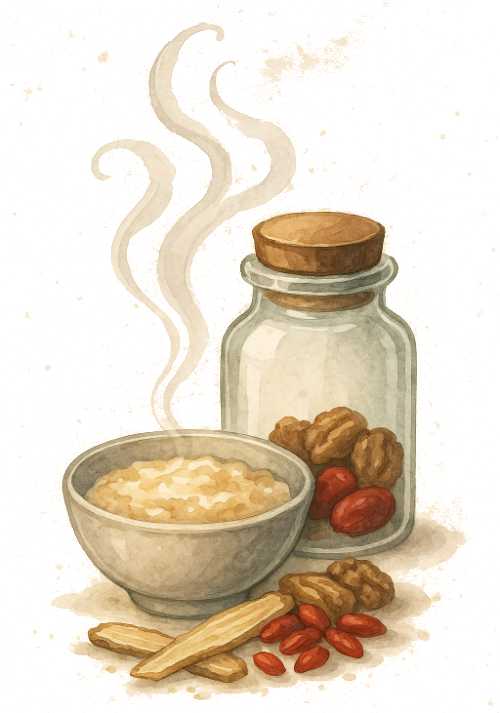Herbs and Formulas for Kidney Support
 Herbal medicine is one of the oldest tools in Traditional Chinese Medicine (TCM) for strengthening the kidneys and supporting overall vitality. For people living with Chronic Kidney Disease (CKD), herbs are never a substitute for medical care, but they may be used as supportive therapies to reduce symptoms, improve energy, and maintain balance. Because many CKD patients take prescription medications, it is essential that herbs are used under the guidance of a qualified practitioner to avoid possible interactions.
Herbal medicine is one of the oldest tools in Traditional Chinese Medicine (TCM) for strengthening the kidneys and supporting overall vitality. For people living with Chronic Kidney Disease (CKD), herbs are never a substitute for medical care, but they may be used as supportive therapies to reduce symptoms, improve energy, and maintain balance. Because many CKD patients take prescription medications, it is essential that herbs are used under the guidance of a qualified practitioner to avoid possible interactions.
Common Kidney Formulas
- Liu Wei Di Huang Wan – Nourishes yin
- •in Gui Shen Qi Wan – Strengthens yang
- Zhen Wu Tang – Supports fluid balance
Always consult a qualified practitioner before using herbal formulas, especially if taking Western medications for CKD.
In TCM, the kidneys are seen as the foundation of yin and yang, storing the essence, or jing, that governs growth, aging, and resilience. When kidney yin is depleted, people may feel dryness, restlessness, or heat in the body. When kidney yang is weak, symptoms can include cold limbs, fatigue, and weakness in the lower back. Herbal formulas are designed to match these patterns, providing tailored support rather than a one-size-fits-all remedy.
One of the most famous formulas is Liu Wei Di Huang Wan (六味地黄丸), created during the Song dynasty. It nourishes kidney yin with herbs like prepared rehmannia root, cornus fruit, and dioscorea. For those with yang deficiency, Jin Gui Shen Qi Wan (金匮肾气丸) is often used. This formula warms and strengthens kidney yang with cinnamon bark and aconite, combined with herbs that support balance. Another classic, Zhen Wu Tang (真武汤), may be chosen when kidney yang weakness leads to water retention, helping the body to manage fluids more effectively.
In modern times, herbal therapy can also be combined with dietary recommendations. Foods and herbs like goji berries, black beans, and eucommia bark are used to gently reinforce kidney strength. These can be prepared as teas, powders, or decoctions, depending on the practitioner’s advice. The key is that treatment is always individualized, taking into account not only the stage of CKD but also the patient’s overall constitution.
Safety remains a top priority. Some herbs can affect blood pressure, blood sugar, or interact with medications prescribed for CKD. For this reason, self-prescribing is not advised. Working with an experienced TCM practitioner ensures that herbs are chosen carefully, with both benefits and risks in mind.
Herbal formulas do not cure CKD, but they can ease discomfort, support energy, and bring a sense of balance. Combined with acupuncture, diet, and medical supervision, they remain a valuable part of the tradition of nourishing kidney health.
Vocabulary Guide
- Liu Wei Di Huang Wan (六味地黄丸) – A classic formula that nourishes kidney yin, used for dryness, restlessness, and weakness.
- Jin Gui Shen Qi Wan (金匮肾气丸) – A formula that strengthens kidney yang, often used for fatigue, cold limbs, and back pain.
- Zhen Wu Tang (真武汤) – A formula that warms kidney yang and helps manage fluid retention.
- Jing (精) – Essence stored in the kidneys, associated with growth, reproduction, and longevity.



